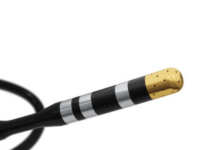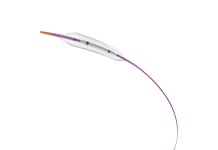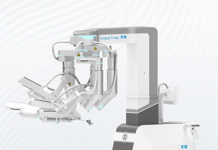Conformal Medical announced that results from an early feasibility study support the use of its CLAAS implant for reducing stroke risk.
Nashua, New Hampshire–based Conformal’s study evaluated angiography compared to transesophageal echocardiogram (TEE) in left atrial appendage (LAA) assessment. Dr. William Gray presented findings at Cardiovascular Research Technologies Conference (CRT 2023) in Washington, D.C. Gray serves as co-director of the Lankenau Heart Institute and Professor of Medicine at Thomas Jefferson University.
According to Gray, the study evaluated data from 36 AFib patients deemed appropriate for left atrial appendage occlusion (LAAO). Researchers analyzed paired images for LAA diameter and depth to facilitate CLAAS device size selection. Results demonstrated a 97% agreement in device size selection between the two imaging modalities.
About the Conformal Medical CLAAS system
Conformal Medical developed the CLAAS system to seal the LAA in patients with non-valvular AFib. The company designed it to reduce the risk of stroke without the need for anticoagulants. It features a proprietary foam-based architecture and addresses a range of LAA anatomies with only two sizes.
The company said it aims for the system to simplify delivery and eliminate the need for procedural TEE. This would allow physicians to perform the procedure without general anesthesia. It could potentially shift clinical practice to a same-day, single-operator procedure.
“The novel CLAAS device is designed to streamline LAAO procedures,” said Dr. Aaron Kaplan, professor of medicine at Dartmouth and Conformal Medical co-founder and CMO. “This study demonstrates that with only two sizes, the CLAAS implant requires minimal imaging, an important step as we look to transform the procedure to a single operator, same day procedure.”
Conformal Medical said it remains actively enrolling patients in its Conform pivotal trial. That trial evaluates CLAAS’ safety and efficacy compared to other commercially available LAAO devices. It plans to use data from the 1,600-subject trial to support FDA pre-market approval.






